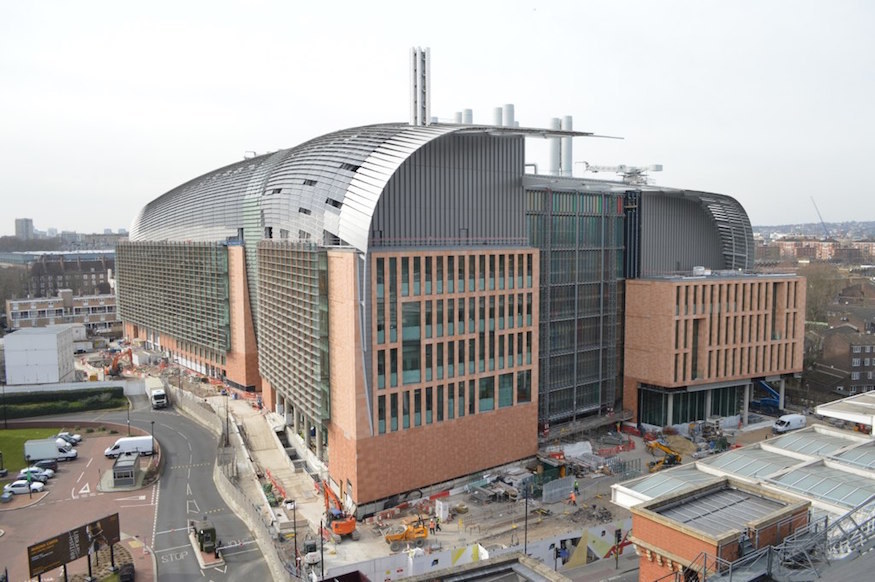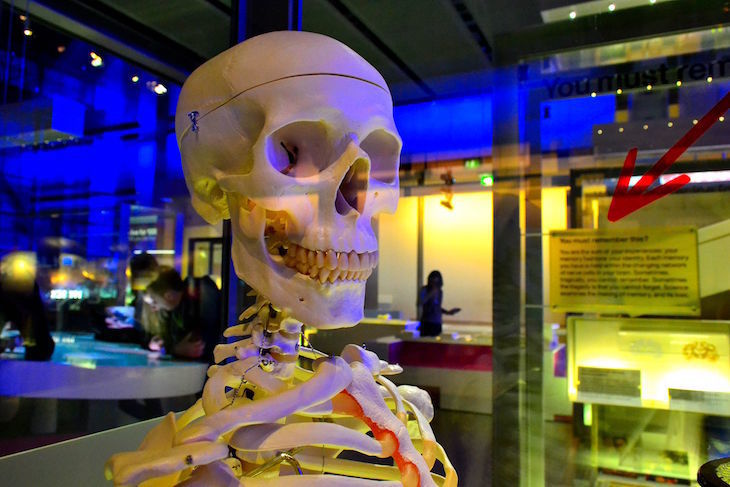
London is one of the best cities in the world for those who enjoy a bit of science. It has the history — Newton, Darwin, Faraday and Fleming are just some of the big names — but the city also continues as a modern science powerhouse with its many universities, learned societies and science/tech startups.
The latest addition is the mammoth Francis Crick Institute behind the British Library. As well as a world-leading research centre, the institute is big on outreach, bringing science and medical advances to the masses through a programme of public events.
London is already blessed with an unrivalled richness of museums, events and festivals dedicated to science. Check the list below for further ideas on where to get science-y.
Museums
The big daddy of them all has to be the Science Museum. It does what it says on the tin. Galleries are devoted to a host of themes including flight, space, medicine, materials and clocks. Regular exhibitions cover topics ranging from robotics to the legacy of Einstein.
There are plenty of opportunities to interact: simulators allow people to experience aerial acrobatics and the £6 million Wonderlab aims to 'inspire visitors of all ages to wonder at the science and mathematics that shape our lives'.

Right next door is the magnificently stripey Natural History Museum building. The museum courted controversy in 2015 when it announced it would replace the much loved (but fake) Dippy the diplodocus with the skeleton of a blue whale. It has regular exhibitions, exploring subjects such as the way that animals see and hosts the annual (and brilliant) Wildlife Photographer of the Year.

Wellcome Collection on Euston Road is part of the mission of the charity founded by Sir Henry Wellcome, to communicate the wonders of science and medicine to a wider audience. There is a fabulous cafe and exhibition space that has eclectic shows, bridging the worlds of science and the arts on topics along the lines of Tibetan temples, psychiatric asylums and Japanese outsider art.

The Royal Observatory in Greenwich is home to the world famous Prime Meridian; an arbitrary line from which all time zones are measured. It is also the historical home of the Astronomer Royal, a post created in 1675 for John Flamsteed by Charles II. Visitors can experience the Planetarium, Camera Obscura and, on special occasions, peer through the massive main telescope.

A whole host of weird and wonderful medical museums lurk in the city's hospitals, medical colleges and universities.
The Hunterian Museum in the Royal College of Surgeons is a treasure trove of extraordinary anatomical exhibits. Not to be outdone, the Royal College of Physician's Grade I listed building by Sir Denys Lasdun hosts a museum, portraits and a medicinal garden. The Royal College of Obstetricians and Gynaecologists also has a museum dedicated to women's health. Numerous others can be found around town.

St Bartholomew's Hospital in the City has a small museum dedicated to its own history and a Museum of Pathology which contains specimens, taxidermy and the skull of John Bellingham, who is the only person to have assassinated a British prime minister.
Almost equally venerable is the Royal Bethlem Hospital, which now hosts the innovative Museum of the Mind on its current campus in Beckenham. The site of Alexander Fleming's happy accident can be visited at St Mary's Hospital.

UCL's Grant Museum is 'the only remaining university zoological museum in London'. It offers an opportunity to get up close and personal with a host of extinct and living critters. There's even a 29ft whale skeleton somewhere in the storeroom.
For something a bit more physics-y, head to the Royal Institution's Faraday Museum, where the centrepiece is the great man's original magnetic laboratory. Vying for the coveted title of smallest museum in London, the shed-based Faraday Effect in Trinity Buoy Wharf documents the experiments Mr F conducted there, in the lighthouse.

Events
Another legacy of Michael Faraday is the Royal Institution's Christmas Lectures, aimed at children and teens. These have been running since 1825 and are now beamed around the country via the magic of television. The RI runs numerous adult events throughout the year.
Gresham College was founded by the will of Sir Thomas Gresham, a key Tudor mover and shaker. It provides free public lectures on a whole host of topics, including science, often in its current home of Barnard's Inn Hall, a rare 15th century survivor of the Great Fire and Blitz.
The Royal Society brings the traditional salon bang up to date with its series of Cafe Scientifique events, which is described as 'an informal dialogue-based event with a scientist'. It also supports a packed programme of other scientific talks, usually free, aimed at the general public, and holds an annual Summer Science Festival that should not be missed.
Science London, affiliated with the British Science Association, runs a series of events looking at the fun side of science 'from speed dating to murder mysteries, from sci-fi to cell biology, from cinemas to sex shops'.
The Science Museum runs a series of events including the hugely successful Lates, which provide a more relaxed forum to discover science in the evening. The Natural History Museum runs the annual Science Uncovered event, which sees its magnificent building filled with interactive science stations, debates and behind the scenes tours.
Wellcome Collection also has regular events, including discussions, open platforms and even dance sessions. Meanwhile, the Francis Crick Institute's neighbour, the British Library, also puts on regular events dedicated to the sciences.

For those who prefer their science to come with some liquid refreshment, there are plenty of informal opportunities to discover science. Nerd Nite, which runs under the caption 'be there and be square', sees experts give quick-fire presentations across disciplines, often accompanied by other 'shenanigans'. Science Showoff is a comedy cabaret for the more extraverted scientist. Cosy Science, Pint of Science and London Skeptics in the Pub all offer the chance to get together in more intimate settings with other like-minded individuals.
Imperial College holds a Festival every year and showcases the work of the world-leading university through interactive activities, workshops and performances. New Scientist took over the massive hangar-like ExCel Centre for its inaugural Live event, which brought a veritable cornucopia of science to the capital. Many events are supported by the Francis Crick Institute's Public Engagement Programme, which also runs events like Crick Chats.
Whatever your interest in science, London has an opportunity for you to indulge your curiosity.



